-
Posts
919 -
Joined
-
Last visited
-
Days Won
255
Content Type
Profiles
Forums
Gallery
Events
Articles
Blogs
Downloads
Community Map
Posts posted by DianeB
-
-
I have deleted yesterday’s (2/3/21) spam post. I left it up for a day to increase awareness. In the interest of transparency, I'd like all to know that I informed the member that the forum was not for solicitation, and because they made no introduction or demonstration of interest in the forum, I issued a warning. If it reoccurs, they will be suspended or banned.
There's nothing inherently wrong with self-promotion on the internet, but here, happily, we have boundaries. If you see something suspicious, please advise one of the moderators.
-
 4
4
-
 2
2
-
-
@Adam429 Adam, are you referring to the "Fretboard Workouts Bundle"? If so, note that the accompanying PDFs are e-mailed along with the links to the videos. I'm not aware of a "workbook" with all those PDFs combined as a single file.
-
The old bait and switch. 😉
-
 1
1
-
-
Thank you, Girard! Nice to have you back. After seeing what Jackson did with "They Shall Not Grow Old," I'm sure this will be terrific. Wow, what memories.
-
Wow, Mike, that's a sweet instrument, and I know you'll do it justice. Make it sing!
-
@Oasis Welcome to the forum! Playing keyboards and drums gives you a great head start on learning guitar. I agree with Wim that it's best in most situations to start with Steve's general guitar course. That course takes up basic fingerstyle about midway through. The fingerstyle course assumes from the outset that you have certain skills.
But if you are really intent on learning fingerstyle, there's no reason you can't start learning right hand patterns right at the beginning, on the six open strings. It won't be really musical, but some exercises just aren't. If you have access to an in-person teacher, take advantage, and the sooner the better.
Explore the forum at your leisure. There's a lot of good advice here. Practice faithfully and the music will follow.
-
 1
1
-
-
Hi, Mohammad. Glad to help. Practice, play, and participate. Join us for the Live Lessons if you can. Details are in the sub forum. If you can’t watch and chat live, you can watch it a few days later after Steve posts the video. If you’re just starting out with guitar, I especially recommend Tom Heany’s “First, Learn to Practice”. It’s concise and direct.
-
 1
1
-
-
@gmills Greg, I have the pdf's (2015 or 2016) but can't locate the video among the ones Steve has archived on YouTube. I vaguely recall that it was done at Gruhn's, but I'm not certain.
Silent Night (Basic Arr) Guitar Gathering.pdf Silent Night (Advanced Arr).pdf
-
Hello, Mohammad, and welcome to the forum. Since you're new, you probably haven't had time to explore. Practice is a big topic, and there's a lot of experience and thoughts about it here. I suggest you start with Steve's video, then consult some of the many good texts on the subject. I've collected a few of them here.
-
 1
1
-
-
@filipmo Another resource is Desi Serna's fretboard theory courses. He used to offer a DVD on the pentatonic scale, but apparently it's no longer available (except u$ed, by arbitrage).
-
 1
1
-
-
Oh, Mandy, I am so sorry. That is devastating. Take all the time you need for yourself and let yourself grieve. Your guitar family will still be here for you.
Diane
-
 1
1
-
-
Hi, Tim, welcome to the forum and the course (again). The answer key to the L&M Lesson Book is here. See my (third) post.
-
Nancy, I like my paper music, but it takes effort to keep the paper controlled. I keep songs that I’m actively working on grouped in letter trays on desk space around the music stand. Other songs go into loose leaf binders. I have only a few pieces of 9x12 sheet music, and I keep these with my song books in magazine holders. Music stand extenders like this give you more real estate.
I have friends who swear by their paperless systems on their tablets, with foot switches for page turning. Nice for performing. But my music stand iPad is devoted to logging practice, watching Steve’s lessons (via Dropbox), and playing along with YouTube. I need to be able to write directly on the page of the music as I’m working, and for this I prefer paper and pencil.
-
In his last Live Lesson on jazz turnarounds, Steve described how one of his students pointed out that Example 16 contains a “backdoor ii-V” (iv7-bVII7): EbM7 (I) - Cm11 (vi7) - Abm7 (iv7) - Db9 (bVII7) - EbM7 (I). Maybe this explains why I can never quite get “Misty” out of my head.
The trick is two common chord tones along with two leading tones. Anton Schwartz explains here, and here.
-
 3
3
-
-
@Scott Jackson Hi, Scott, and welcome to the forum. Your question is somewhat above my pay grade, but not that of instructor Desi Serna. His recent podcast on pentatonics may be helpful to you.
-
@Gran Gran Welcome to the forum, and I presume, to Steve's course. My take on your question is this: the guitar that will best help you learn is the one on which you actually practice and play. That guitar could cost anywhere from $25 to $250,000. It should suit the kind of music you want to play, give you pleasure, and it should be professionally set up so that you don't have to work against it. So, my layperson's short answer is, no.
There comes a price point of diminishing returns at which the extra dollars do not add playability or tone as much as they add trim and finish. This point varies with the individual. A downside of owning a pricey instrument is that one can become more concerned with preserving its value than actually playing it. These days one can purchase a high quality instrument for $2,000, so your present guitar should serve you well as a student. All the best.
-
 3
3
-
-
@Wim VD1 Congratulations, Wim! That's some real dedication! 👏
-
 1
1
-
-
Those blues guys, always teasing the law! 😁
-
 1
1
-
 1
1
-
-
For the past few years, off and on, I’ve studied music theory with the Community Music School near me at the University of Delaware. We tallied around 55 class hours, and have progressed — pun intended — about as far as we can go before delving into specific areas such as orchestrating and songwriting. My instructor is the supremely talented Kevin J. Cope, composer and president of the Philadelphia Classical Guitar Society.
Our final assignment this summer was to write a piece for solo piano incorporating what we’ve learned. I can’t play piano — it would have helped — but fortunately Finale can, and that’s what you’ll hear in the mp3 (2:42). I gave the score to a friend who’s an experienced pianist, and she pronounced it quite playable. So this isn’t for guitar, although my guitar certainly helped with testing progressions. Here’s my “Letter from Emily”.
-
 7
7
-
-
Happy for you all! Thanks for the report!
-
 1
1
-
-
Happy birthday, Steve! 🎂 🍰 🎉 🎈
-
@Terrible Tim I won't attempt to offer advice, but it is a fascinating subject: https://en.wikipedia.org/wiki/Cross-dominance
-
A whimsical take on chords and composers: two charming creations of "Classic Jenny". These have circulated for a while. You'll find more cartoons in her archives section. Scroll back through her early work to see her steady artistic improvement.
-
 2
2
-
 2
2
-
-
I removed Steve's old Skills House PDF on the NNS. Here's the latest version.
-
 1
1
-

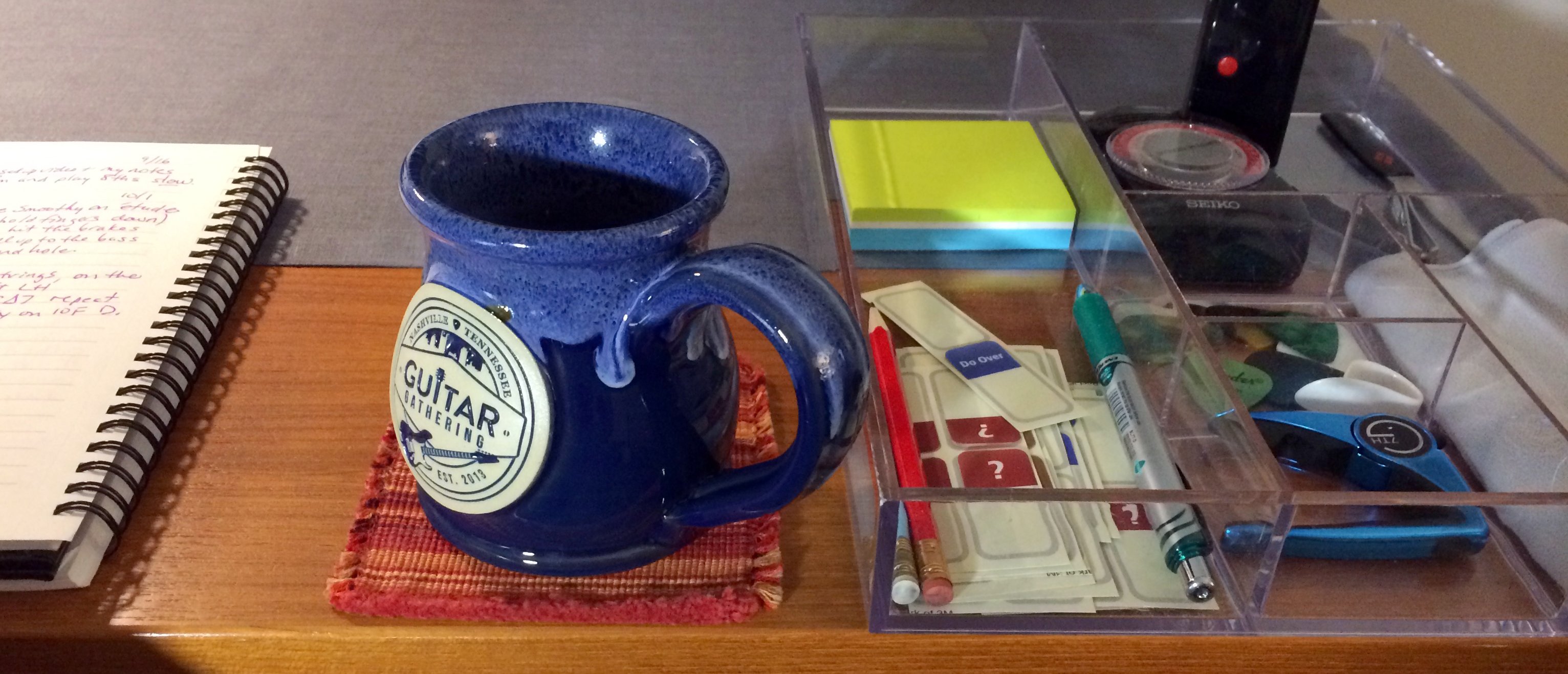


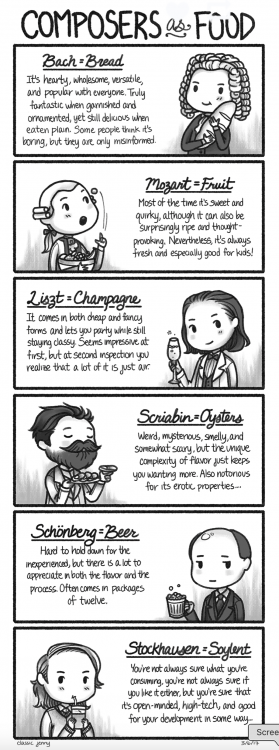
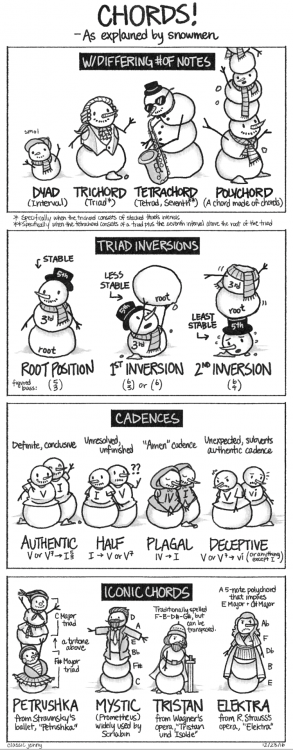
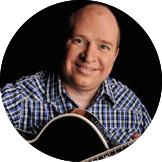
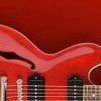
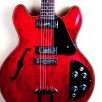
Are classical scales the way to learn the fretboard?
in Guitar Playing & Technique
Posted
Hi, Eduardo,
Welcome to the forum!
To get a truly satisfactory answer to your question, I recommend consulting with an experienced guitar teacher. If you give them an account of your past musical experience and present knowledge, and a vision of where you want to go, you will form a clear plan of what to do now and what to save for later.
For now, I can say that the melodic minor and harmonic minor scales are compositional tools. They exist to create authentic cadences (V or vii dim —> I or i). You will encounter them in melodies where they are called for and likely not even notice them.
After consulting with my own instructors, I deferred Steve’s session on pentatonic scales to focus on the major scales. This is just one approach. I think Steve introduced pentatonics in the course where he does to give the student momentum in learning the fretboard, and pentatonics are a little simpler than major scales.
So much depends on what you want to do with guitar. That’s where a real conversation with a teacher is invaluable. I'm sure my friends here will offer good insights.